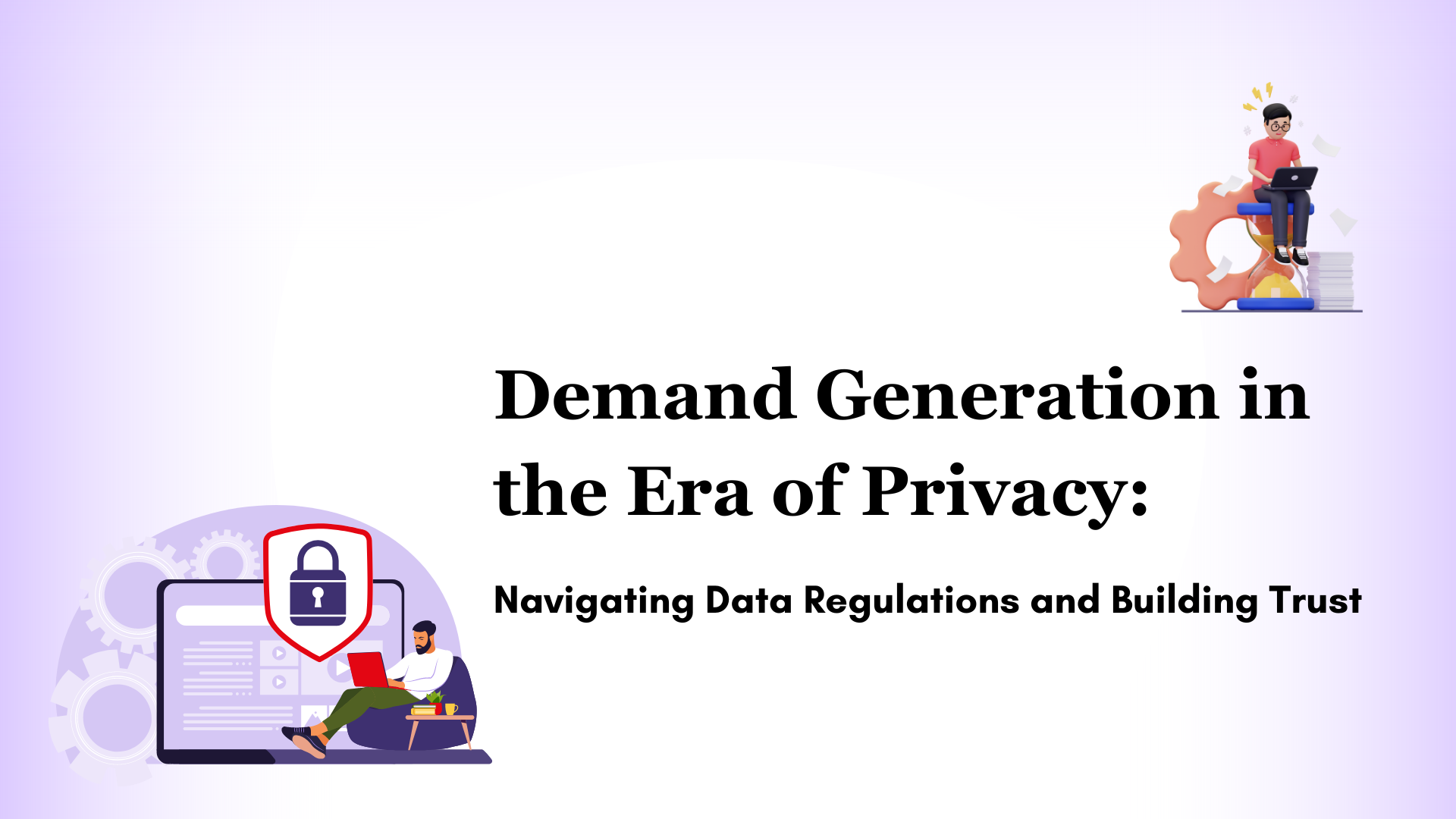Demand Generation in the Era of Privacy: Navigating Data Regulations and Building Trust
In today’s digital landscape, demand generation has become a critical aspect of marketing strategies for businesses across industries. However, with the increasing focus on data privacy and the implementation of stringent regulations, marketers face new challenges in effectively reaching their target audience while respecting individual privacy rights. This article explores the importance of demand generation in the era of privacy, highlights key data regulations, and provides insights into building trust with consumers while driving demand.

The Significance of Demand Generation
Demand generation is the process of creating interest and generating demand for a company’s products or services. It encompasses various marketing activities, including lead generation, content marketing, email marketing, and social media campaigns. Effective demand generation strategies help businesses attract and engage potential customers, nurture leads, and ultimately drive conversions and revenue.
Data Privacy Regulations
In recent years, data privacy regulations have emerged worldwide to protect individuals’ personal information and ensure transparency in data collection and usage. Key regulations such as the General Data Protection Regulation (GDPR) in the European Union and the California Consumer Privacy Act (CCPA) in the United States have significantly impacted how businesses collect, store, and use customer data. Marketers must understand and comply with these regulations to maintain consumer trust and avoid potential legal ramifications.
Transparent Data Collection Practices
Building trust with consumers starts with transparent data collection practices. Marketers should clearly communicate to their audience how and why they collect data, what data is collected, and how it will be used. This transparency fosters trust and assures individuals that their information is handled responsibly. Implementing explicit opt-in mechanisms and providing easy-to-understand privacy policies can further enhance transparency. and empower individuals to make informed decisions about sharing their data.
Consent-based Marketing
Consent-based marketing is crucial in the era of privacy. Marketers must obtain explicit consent from individuals before collecting and using their personal data for marketing purposes. This consent should be freely given, specific, informed, and unambiguous. Implementing robust consent management systems allows businesses to track and manage consent preferences effectively, ensuring compliance with data regulations and respecting individual privacy rights
Data Security and Protection
Data security and protection are paramount in demand generation. Marketers must invest in robust data security measures to safeguard customer data from unauthorized access, breaches, or misuse. Implementing encryption, regular data backups, and access controls can help protect sensitive information. By prioritizing data security, businesses demonstrate their commitment to protecting customer privacy, building trust, and mitigating potential risks.
Personalization with Privacy in Mind
Personalization plays a crucial role in effective demand generation. However, personalization should be balanced with privacy considerations. Marketers can leverage advanced technologies like artificial intelligence (AI) and machine learning to analyse data in an anonymized and aggregated manner, ensuring that individuals’ privacy is protected. By delivering personalized experiences while respecting privacy, businesses can enhance customer engagement and drive demand without compromising data privacy.
Ethical Data Usage
Maintaining ethical data usage practices is essential for building trust with consumers. Marketers should avoid intrusive data collection methods and focus on delivering value to customers through targeted and relevant content. By providing individuals with meaningful experiences and demonstrating respect for their privacy preferences, businesses can establish trust and loyalty, leading to stronger demand generation results.
Audience Segmentation and Targeting
Audience segmentation and targeting allow marketers to focus their efforts on reaching the right audience with relevant messaging. By segmenting audiences based on demographic, behavioural, or psychographic attributes, businesses can tailor their marketing campaigns to specific customer groups. This approach not only improves the effectiveness of demand generation initiatives but also reduces the risk of unnecessary data collection by targeting only those individuals who are likely to be interested in the products or services being offered.
In Conclusion, Demand generation remains a crucial aspect of marketing strategies, but in the era of privacy, it requires a thoughtful and ethical approach. Marketers must navigate data regulations, prioritize data privacy and security, and build trust with consumers through transparent practices. By adopting consent-based marketing, implementing robust data security measures, personalizing experiences while respecting privacy, and maintaining ethical data usage, businesses can successfully navigate the challenges of demand generation in the era of privacy and build long-term customer relationships based on trust and transparency.


